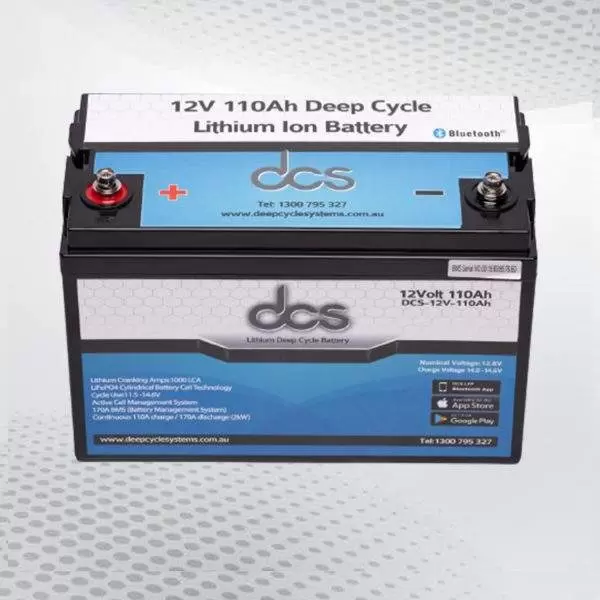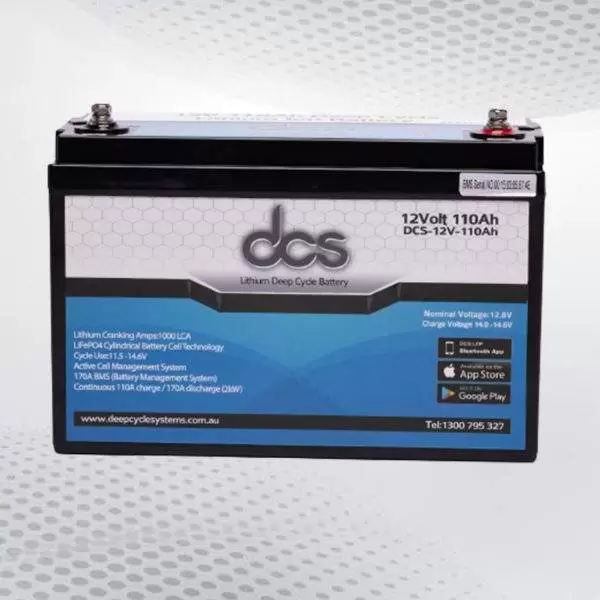Do you have a liFePO4 battery that needs to last longer? If so, this blog post is for you. We’ve gathered some of the best tips to help you extend the life of your battery and get the most out of it. From the right charging methods to choosing the correct temperature and using the right storage techniques, these tips will help ensure your lithium-FePO4 battery runs optimally for as long as possible. Read on to learn more about how to maximize the life of your lithium-FePO4 battery.
Understanding Lithium-Fepo4 Battery
Lithium-FePO4 batteries are becoming increasingly popular due to their high energy density and longer lifespan than traditional lead-acid batteries. But what exactly are these batteries, and how do they work? Lithium-FePO4 batteries are rechargeable batteries that use lithium iron phosphate (LiFePO4) as the cathode material. This material provides a stable and reliable energy storage solution, making it ideal for various applications, from electric vehicles to renewable energy storage.
One of the main advantages of lithium-FePO4 batteries is their high energy density, meaning they can store more energy in a smaller and lighter package. This makes them perfect for portable devices or applications where space is limited. Lithium-FePO4 batteries have a longer lifespan compared to other lithium-ion batteries. They can withstand more charge and discharge cycles, making them a cost-effective choice in the long run.
Charging Tips for Lithium-Fepo4 Battery
Charging your lithium-FePO4 battery correctly is crucial to maximize its lifespan and performance. Here are some essential tips to help you change your battery effectively:
Use the Right Charger:
Always use a charger specifically designed for lithium-FePO4 batteries. Using the wrong charger can lead to overcharging or undercharging, which can degrade the battery’s capacity over time.
Avoid Overcharging:
Never leave your battery plugged into the charger for an extended period. Once the battery is fully charged, unplug it to prevent overcharging. Overcharging can cause overheating and reduce the battery’s overall lifespan.
Follow the Recommended Charging Voltage:
Check the manufacturer’s guidelines for the recommended charging voltage. Charging the battery at higher voltages than specified can cause irreversible cell damage.
Charge at the Optimal Temperature:
Lithium-FePO4 batteries perform best when charged at temperatures between 0°C and 45°C. Charging at extremely low or high temperatures can impact the battery’s capacity and longevity.
Avoid Fast Charging Unless Necessary:
While fast charging can be convenient, it puts more stress on the battery, leading to increased wear and tear. Opt for a slower charging rate to preserve the battery’s lifespan if possible.
Storage Tips for Lipo Battery 12v
Proper storage is crucial for maintaining the performance and longevity of your lithium-FePO4 battery. Here are some important tips to keep in mind when storing your Lipo battery 12v:
Temperature Control:
Store your battery in a cool, dry place. Extreme temperatures, both hot and cold, can have a detrimental effect on the battery’s capacity and overall health. Aim for a storage temperature between 20°C and 25°C for optimal results.
Avoid Full Discharge:
Ensure it is not fully discharged before storing your battery. Leaving a lithium-FePO4 battery fully discharged for an extended period can cause irreversible damage and significantly reduce its lifespan. Ideally, store the battery with a charge level of around 40-60%.
Use a Battery Management System:
If you plan to store your Lipo battery 12 volt for an extended period, consider using a battery management system (BMS). A BMS will monitor the battery’s voltage and temperature, ensuring it stays within safe limits and preventing over-discharge or overcharging.
Regular Maintenance:
While in storage, it is important to regularly check the battery’s voltage to ensure it is within a healthy range. This will help identify any issues early on and allow you to take appropriate action.
By following these storage tips, you can prolong the life of your Lipo battery 12 volt and ensure it remains in optimal condition when you are ready to use it again.
Maintenance Tips for Lithium-Fepo4 Battery
Proper maintenance is key to ensuring the longevity and optimal performance of your lithium-FePO4 battery. Here are some essential maintenance tips to keep in mind:
Regular Inspections:
Periodically check your battery for any signs of damage, such as leaks or bulges. If you notice any issues, take immediate action to prevent further damage.
Keep It Clean:
Clean your battery terminals regularly using a soft cloth or brush. Remove any dirt, dust, or corrosion that may have accumulated. Clean terminals ensure a good connection and efficient performance.
Avoid Over-Discharging:
While lithium-FePO4 batteries are more tolerant of deep discharges than other lithium-ion batteries, it is still important to avoid over-discharging whenever possible. Deep discharges can put unnecessary strain on the battery and reduce its lifespan.
Follow Manufacturer Guidelines:
Refer to the manufacturer’s guidelines for specific maintenance recommendations. Each lithium-FePO4 battery may have unique requirements, so following the recommended maintenance practices is essential.
Consider a Battery Management System:
To take your maintenance routine to the next level, consider investing in a battery management system (BMS). A BMS can monitor the battery’s health, temperature, and voltage, providing valuable information to ensure optimal performance.
By following these maintenance tips, you can keep your lithium-FePO4 battery in top shape, extending its life and maximizing its performance. Remember, proper maintenance is essential for getting the most out of your battery investment.
Discharge Tips for Lithium-Fepo4 Battery
Maximizing the lifespan and performance of your lithium-FePO4 battery goes beyond just charging and storage. Understanding how to discharge your battery properly is equally important. Here are some discharge tips to keep in mind:
Avoid Complete Discharges:
While lithium-FePO4 batteries are more tolerant of deep discharges than other lithium-ion batteries, it is still best to avoid completely discharging your battery whenever possible. Keeping the battery above 20% capacity helps prolong its lifespan and maintains optimal performance.
Use a Battery Management System (BMS):
Consider using a BMS with a discharge protection feature. This system will automatically cut off power when the battery reaches a certain voltage, preventing over-discharge and ensuring the longevity of your battery.
Monitor Discharge Rates:
Pay attention to the rate at which your battery discharges. Rapid discharges, especially at high currents, can cause excessive stress on the battery and shorten its lifespan. Opt for lower discharge rates when possible.
Avoid Overheating:
Excessive heat can damage the battery’s cells and reduce capacity. To prevent overheating during discharge, ensure proper ventilation and avoid placing the battery in direct sunlight or hot environments.
By following these discharge tips, you can help extend the life of your lithium-FePO4 battery and maximize its performance. Proper charging, storage, and maintenance are vital in optimizing your battery’s lifespan.
Common Mistakes to Avoid with 100ah Deep Cycle Battery
When it comes to getting the most out of your 100ah deep cycle battery, there are some common mistakes that you should avoid. By being aware of these mistakes, you can ensure your battery lasts as long as possible and performs optimally. One common mistake is overcharging the battery. Leaving it plugged in for too long or using a charger that is not specifically designed for your battery can lead to overcharging, which can degrade the battery’s capacity over time. It’s important to follow the recommended charging guidelines provided by the manufacturer to avoid this issue.
Another mistake to avoid is discharging the battery too deeply. While deep discharges may be more tolerable for a lithium-FePO4 battery than other lithium-ion batteries, it’s still best to avoid completely discharging it whenever possible. Keeping the battery above 20% capacity will help prolong its lifespan and maintain optimal performance. Neglecting regular maintenance is another common mistake. Periodically inspecting the battery for any signs of damage, cleaning the terminals, and following the manufacturer’s maintenance recommendations are essential for maximizing the battery’s performance and lifespan.
Maximizing Performance of Lithium-Fepo4 Battery
To maximize the performance of your lithium-FePO4 battery, there are a few key strategies to keep in mind. Regular maintenance is crucial. Take the time to inspect your battery for any signs of damage, clean the terminals, and follow the manufacturer’s recommended maintenance guidelines. This will help ensure your battery remains in optimal condition and performs at its best. Consider investing in a battery management system (BMS).
A BMS can monitor your battery’s health, temperature, and voltage, providing valuable information to help optimize its performance. This will allow you to make necessary adjustments and ensure your battery operates efficiently. It’s important to pay attention to discharge rates. Rapid discharges, especially at high currents, can stress the battery excessively and shorten its lifespan. Opt for lower discharge rates whenever possible to minimize wear and tear.
FAQs
Can I use a regular lithium-ion charger for my lithium-FePO4 battery?
No, it is not recommended. Lithium-FePO4 batteries have different charging requirements than regular lithium-ion batteries. Using a charger specifically designed for lithium-FePO4 batteries is crucial to ensure proper charging and maximize the battery’s lifespan.
How long does a lithium-FePO4 battery typically last?
Lithium-FePO4 batteries have a longer lifespan than other lithium-ion batteries, typically lasting between 2,000 to 5,000 charge cycles. However, factors such as charging and discharging rates, temperature, and maintenance practices can influence the battery’s longevity.
Can I store my lithium-FePO4 battery in extreme temperatures?
Extreme hot and cold temperatures can hurt the battery’s performance and lifespan. It is best to store your battery in a cool, dry place with a temperature between 20°C and 25°C for optimal results.
Is it possible to overcharge a lithium-FePO4 battery?
Yes, overcharging a lithium-FePO4 battery can be detrimental to its lifespan. It is important to follow the manufacturer’s recommended charging guidelines and avoid leaving the battery plugged in for extended periods once fully charged.
Can I use a liFePO4 battery in my electric vehicle?
Absolutely! Lithium-FePO4 batteries are popular for electric vehicles due to their high energy density and longer lifespan. They provide reliable and efficient power, making them ideal for EV applications.
Conclusions
By following the tips outlined in this blog post, you can significantly extend the life of your lithium-FePO4 battery and get the most out of it. From understanding how these batteries work to implementing proper charging, storage, maintenance, and discharge techniques, you can ensure your battery remains reliable and efficient for as long as possible. Remember to use the right charger, avoid overcharging and deep discharges, keep the battery clean, and consider investing in a battery management system.



